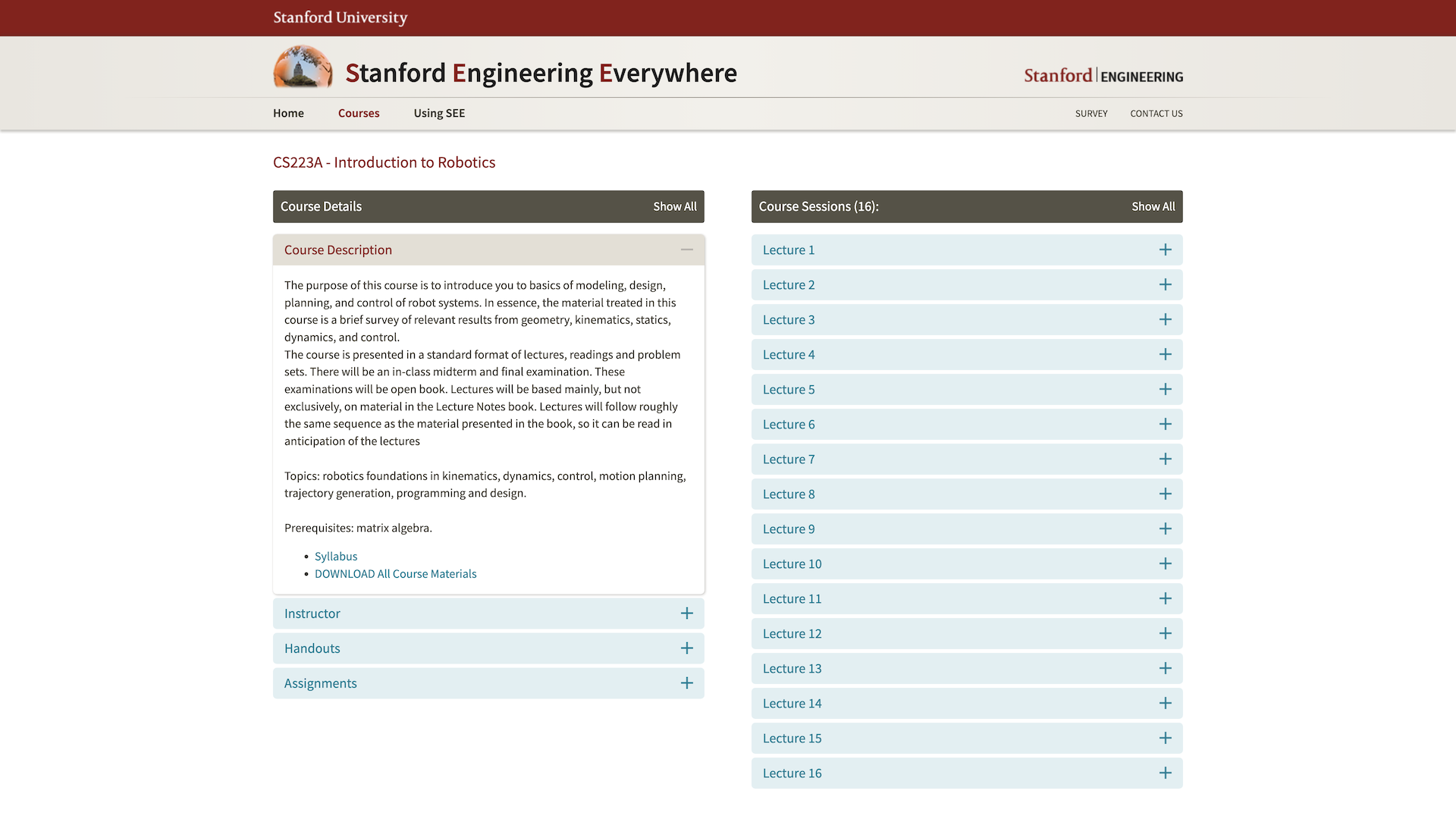Introduction to Robotics | Stanford University
Gain a comprehensive understanding of the fundamental principles and techniques in robotics with this course covering kinematics, dynamics, control, motion planning, and more.
Introduction
The purpose of this course is to introduce the basics of modeling, design, planning, and control of robot systems, covering relevant results from geometry, kinematics, statics, dynamics, and control.

Highlights
- Covers robotics foundations in kinematics, dynamics, control, motion planning, trajectory generation, programming and design
- Presented in a standard format of lectures, readings, and problem sets
- Open-book in-class midterm and final examinations
Recommendation
This course is suitable for those interested in gaining a comprehensive understanding of the fundamental principles and techniques in robotics. The course provides a solid foundation for further exploration in the field of robotics.
How GetVM Works
Learn by Doing from Your Browser Sidebar

Access from Browser Sidebar
Simply install the browser extension and click to launch GetVM directly from your sidebar.

Select Your Playground
Choose your OS, IDE, or app from our playground library and launch it instantly.

Learn and Practice Side-by-Side
Practice within the VM while following tutorials or videos side-by-side. Save your work with Pro for easy continuity.
Explore Similar Hands-on Tutorials
Artificial Intelligence for Robotics | MOOC - Udacity
0Data Science for Dynamical Systems | Practical Applications, Reinforcement Learning
0Mobile Sensing and Robotics | Bonn University Course
0Introduction to Feedback Control Systems | CMU 16-299 | Spring 2022
0Robot Dynamics | Advanced Robotics Course - CMU
0Optimal Control Theory | Carnegie Mellon University
0Model Predictive Control Course | EPFL Engineering
0Autonomous Vehicle System Engineering | UIUC CS 588 by David Forsyth
0Network Systems, Dynamics & Control | UC Santa Barbara ME 269
0Discover categories